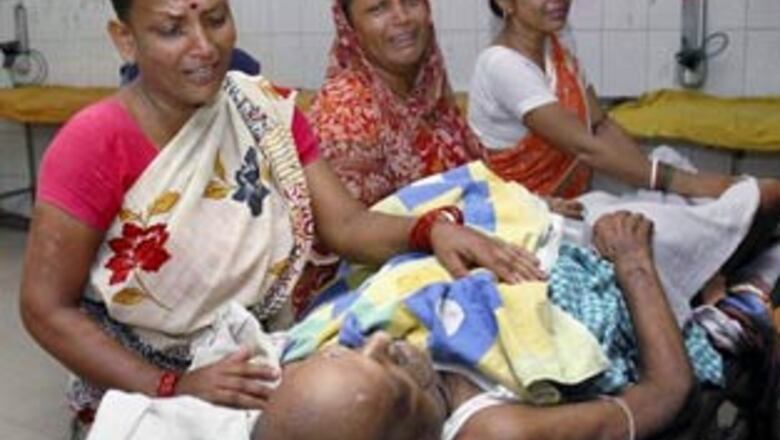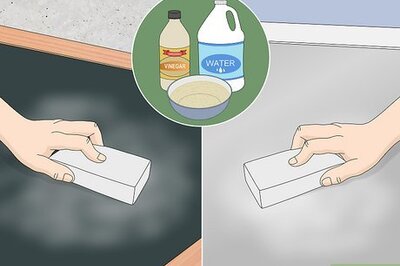
views
Patna: A five-day-old strike by the junior doctors in a hospital in Patna has claimed the lives of at least 38 patients even as the Bihar government on Monday served notices to the medicos and asked them to return to work or face action, an official said.
A day after Chief Minister Nitish Kumar expressed his anger at the doctors' strike that has paralysed health services in the Patna Medical College and Hospital (PMCH), Health Secretary C K Mishra served notices on doctors asking them to report back to duty.
PMCH sources said negotiations between striking doctors and the hospital authorities are on but the deadlock continues.
"At least six patients have died in the last 24 hours alone (Sunday-Monday) due to lack of doctors and treatment in the hospital," a government official said on condition of anonymity.
The official said lack of doctors in the emergency ward led to most of the deaths. Thirty-eight people have died since the strike on Wednesday evening.
But the government is yet to officially confirm any death due to the strike.
"Whatever deaths have been reported were not from want of care, but because of natural causes," PMCH superintendent O.P. Choudhary said.
More than 400 junior doctors went on an indefinite strike, first demanding a hike in stipend and then payment of salary instead of stipend.
"We are not going to end the strike following the state government's decision to raise the stipend. We want the state government to pay us monthly salary instead of stipend," PMCH Junior Doctors Association president Rajiv Babu said on Sunday.
The strike has badly hit emergency, outdoor and surgery services of the hospital.
Most of the wards of the hospital wore a deserted look as hundreds of patients were forced to shift to private nursing homes.
"Those who cannot afford treatment outside have been left in the lurch and are waiting for treatment," a nurse in the hospital told IANS.
"It is really a bad situation. Neither the striking doctors nor the government realise the problem. The emergency ward has few patients now. In normal days, the emergency ward remains overcrowded and patients have to be treated on the floor due to shortage of beds," she said.



















Comments
0 comment